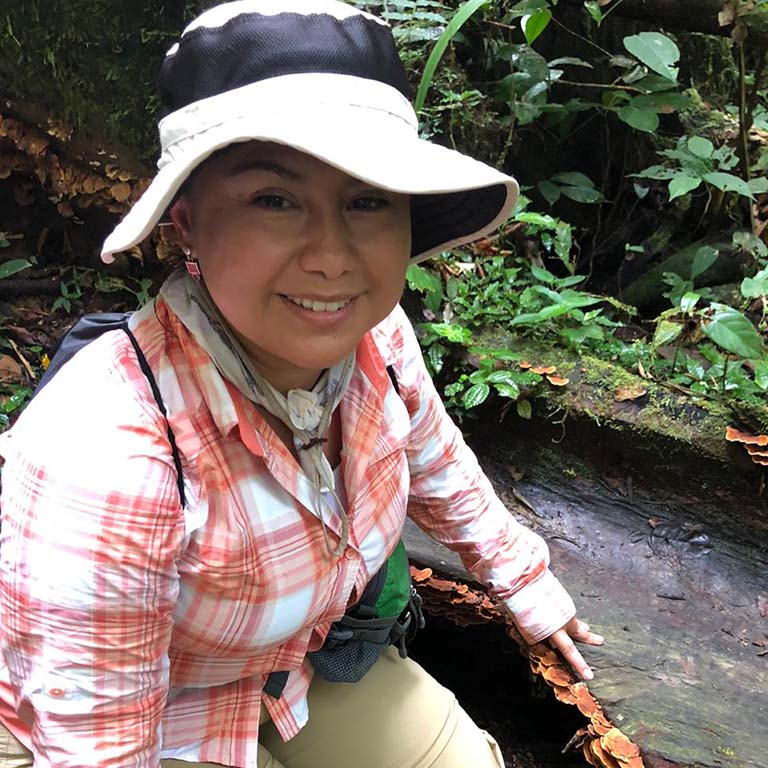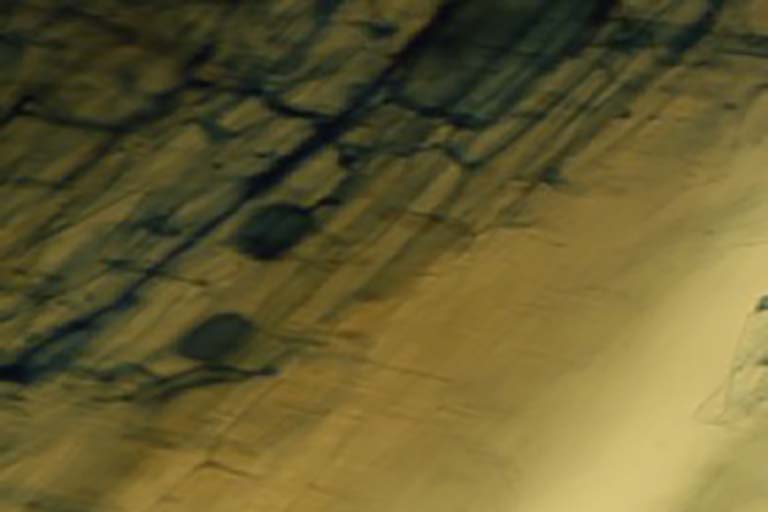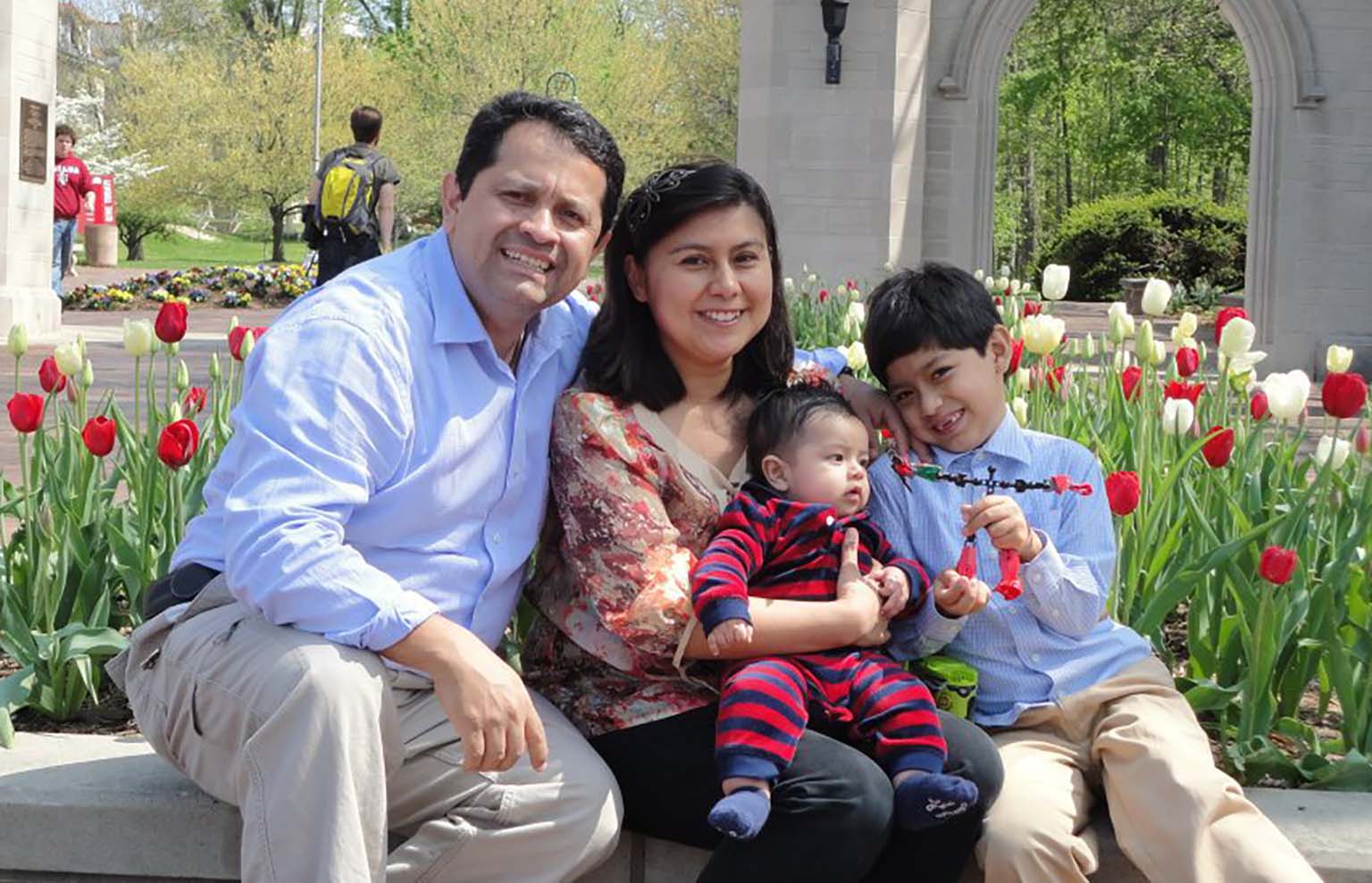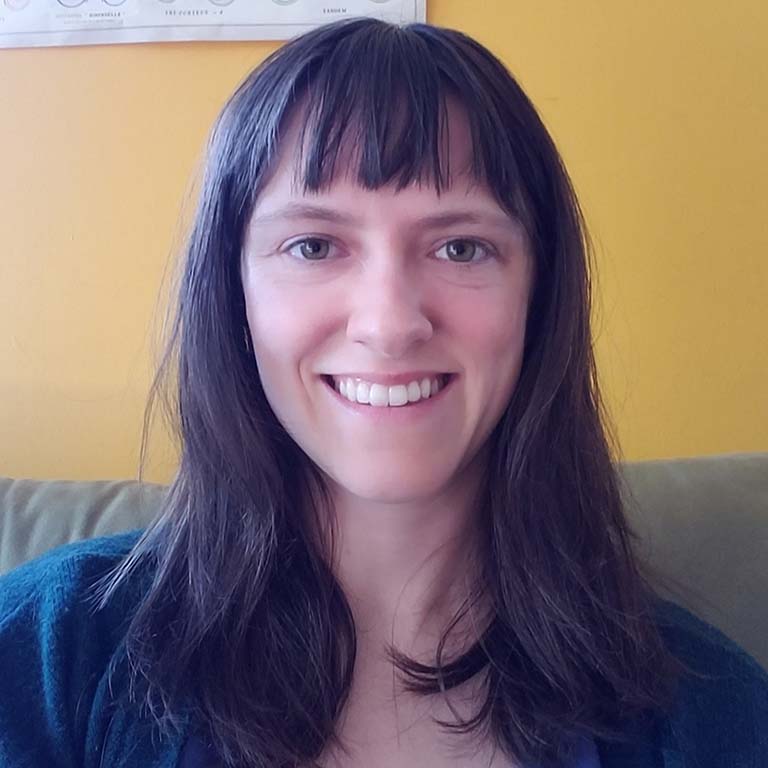At Indiana University Bloomington, Duchicela joined the James Bever and Peggy Schultz lab in the Department of Biology, which studied the role of mycorrhizal fungi in the restoration of prairie ecosystems. After completing her master’s where she showed that livestock grazing reduced mycorrhizal activity and soil stability in grasslands, she continued to work with Bever and Schultz to earn her Ph.D. She wanted to investigate the role of mycorrhizae in Ecuador’s most unique ecosystem—the Galápagos Islands.
The Galápagos Islands formed from land that rose out of the ocean around one million years ago—a blink of an eye in geologic time. Dotting the Pacific Ocean like a tiny village in a vast desert, the twenty islands lie 1,000 kilometers west of mainland Ecuador. Being isolated from the continent, they were devoid of all life when they first arose; plants and animals would have to travel the turbulent open ocean to colonize the islands’ barren shores.
The first life forms to make the journey were likely spores from mosses and ferns transported to the islands by wind. Larger animals came by sea: good swimmers such as sea lions and sea turtles hitched rides on swift currents while reptiles and small mammals may have floated there on rafts of vegetation. The seeds of salt-tolerant plants such as mangroves could have survived the long float to the islands as well.
Humans arrived in the 19th century and introduced agricultural crops from mainland Ecuador. Guava, strawberry, blackberry, and cinchona—a tree cultivated for the malaria-fighting substance, quinine, produced by its bark—were scattered across the islands’ arid landscape. Over time, these crops outcompeted the native plants, and today many of the islands’ native species are endangered. Adding to the urgency to protect these species is the fact that many of them are endemic to the islands, meaning they occur nowhere else on Earth.
Noting that the invasive species, when found on the mainland, partner with mycorrhizae, Duchicela wondered how the fungi could be giving the crops a competitive advantage over native plants on the islands. Her question took her to Santa Cruz Island, the second largest of the Galápagos archipelago. Its long history of human settlement has left its vegetation ravaged by invasive species, and as the home of the Charles Darwin Research Station, Santa Cruz would be the ideal island for Duchicela’s project.
With the help of a local botanist, Duchicela identified areas of the island that were heavily invaded and those that were still brimming with native species. For ten months, she lived on the island, working in the field and in the lab. On field days, she set out to the plots in a burly pair of hiking boots to protect her feet and ankles from the island’s spiny cacti. By 6 a.m. she would be kneeling in her hiking pants gathering soil samples into Ziplock bags. Ecuador’s extreme equatorial heat during the dry season and frequent downpours during the rainy season added climatic challenges to fieldwork. In the lab, Duchicela analyzed the soil samples to determine if the mycorrhizal activity was different in the invaded plots versus those where native species still ruled.
What she found turned out to be a monumental discovery—while the fungi boosted invasive species’ growth and enhanced their ability to access water and nutrients, this effect on native species was negligible. Native plants on Santa Cruz Island did not benefit from mycorrhizal fungi.
This pattern is opposite from that observed on continental mainlands across the globe where native plants are more likely to form symbioses with mycorrhizae than invasive species. As a result, restoration ecologists on the mainland often fertilize soils with mycorrhizae to encourage native plant growth. Duchicela showed that on islands like the Galápagos researchers would need to find a different method for restoring native plant species.
The groundbreaking work presented a conundrum for island farmers who use mycorrhizal fungi to stabilize and fertilize the soil for crop production. One of Duchicela’s advisors, Peggy Schultz, Ph.D., says the new knowledge put land managers in an uncomfortable position, forcing them to decide between developing healthy soils for agriculture—a must for feeding the remote islands’ 25,000 residents—or conserving the islands’ precious native plants.
The Galápagos National Park, ironically, was also at fault for dispersing mycorrhizal fungi. In their efforts to save native plants, the park’s restoration ecologists had been growing native plant seedlings in soil that contained mycorrhizal fungi because this soil, with its earthy smell and dark color, appears healthier than the islands’ native soil, which is sandy and dry. Thus upon transplantation of the seedlings, the mycorrhizae spread throughout the island.
In light of Duchicela’s findings, the park transitioned to using the Galápagos’ natural soil to grow the seedlings. Duchicela also convinced the farmers to refrain from importing new strains of mycorrhizae to the island, though they would continue to use existing ones as fertilizer. “Those were the two things that, after many discussions, we were able to find together,” says Duchicela.




 The College of Arts
The College of Arts